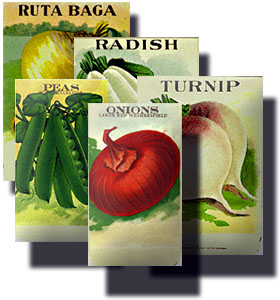Back to Steep, Yew Tree Cottage and the garden.

'Old Man' or Southernwood.
After Adlestrop, 'Old Man' is probably Thomas's best-known poem. It almost existed in prose form three weeks before the poem, in mid-November 1914, prose which is close to poetry, the poetry 'trying to get out' as it did on 6th December.
An extract from the novel:
'Myfanwy was watching him from the porch. She reached out to break off a sprig from the top of the grey-green shrub called Old Man or Lad’s Love growing there and sniffed at it absent-mindedly.
‘Baba – how many times must I tell you not to do that!’ Myfanwy looked gravely at him and ran off, through the gate into the Dodds’ next door. The two gardens formed the boundary of her world; he wondered what she would remember of it. He had thought so intensely in recent years about his own childhood, but he found that these thoughts would only take him so far. Some memories were too elusive for thought. This shrub, the scent of it, tantalised him with the mystery of what it was, what memory it was, that was eluding him.
The shrub was still only half the height of Myfanwy because of her habit of picking a stalk and sniffing it whenever she went in or out of the house. He’d written about it only a few weeks before in his notebook – he would look it up once the pear was pruned. The enigma of those contradictory names pleased him, but it was the elusiveness of memories that was the compelling interest of the subject for him. He had almost visionary memories of certain gardens he’d known as a child, when with your back to the house the garden path stretched on for ever. He would mould those thoughts and notes into a poem, a long poem without too clear a structure, just as the scent led him to ‘Only an avenue, dark, nameless, without end.’ '
OLD MAN
To one that knows not Lads-Love, or Old Man,
The hoar green feathery herb, almost a tree,
Growing with rosemary and lavender.
Even to one that knows it well, the names
Half decorate, half perplex, the thing it is:
At least, what that is clings not to the names
In spite of time. And yet I like the names.
The herb itself I like not, but for certain
I love it, as someday the child will love it
Who plucks a feather from the door-side bush
Whenever she goes in or out of the house.
Often she waits there, snipping the tips and shrivelling
The shreds at last on to the path,
Thinking perhaps of nothing, till she sniffs
Her fingers and runs off. The bush is still
But half as tall as she, 'though it is as old;
So well she clips it. Not a word she says;
And I ca only wonder how much hereafter
She will remember, with that bitter scent,
Of garden rows, and ancient damson trees
Topping a hedge, a bent path to a door
A low thick bush beside the door, and me
Forbidding her to pick.
As for myself,
Where first I met the bitter scent is lost.
I, too, often shrivel the grey shreds,
Sniff them and think and sniff again and try
Once more to think what it is I am remembering,
Always in vain. I cannot like the scent,
Yet I would rather give up others more sweet,
With no meaning, than this bitter one.
I have mislaid the key. I sniff the spray
And think of nothing; I see and I hear nothing;
Yet seem, too, to be listening, lying in wait
For what I should, yet never can, remember;
No garden appears, no path, no hoar-green bush
Of Lad's-love, or Old Man, no child beside,
Neither father nor mother, nor any playmate;
Only an avenue, dark, nameless, without end.
 |
| (c.illustrationcupboard) |
Only with scents, - scents dead leaves yield,
And bracken, and wild carrot's seed,
And the square mustard field;
Odours that rise
When the spade wounds the root of tree,
Rose, currant, raspberry, or goutweed,
Rhubarb or celery;
The smoke's smell, too,
Flowing from where a bonfire burns
The dead, the waste, the dangerous,
And all to sweetness turns.
It is enough
To smell, to crumble the dark earth,
While the robin sings over again
Sad songs of Autumn mirth.
IT was a perfect day
As sweet and dry was the ground
As tobacco-dust.
I tasted deep the hour
Between the far
 Owl's chuckling first soft cry
Owl's chuckling first soft cry And the first star.
A long stretched hour it was;
Nothing undone
Remained; the early seeds
All safely sown.
And now, hark at the rain,
Windless and light,
Half a kiss, half a tear,
 Saying goodnight.
Saying goodnight. |
| Last July's allotment - the point of it all. |



No comments:
Post a Comment